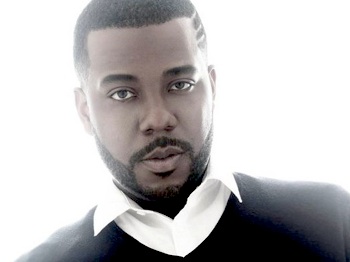Stirring program at Temple Emanu-El
A remarkable young man came to San Francisco Sunday evening for the West Coast Premiere of A Time to Break Silence, a song cycle inspired by the words of Martin Luther King, Jr., and composed by Juilliard’s Wayne Oquin.
Part of a long-running series of recitals for singers who have been associated with the SF Opera’s Merola and Adler programs, baritone Sidney Outlaw’s Schwabacher Debut recital is one of four this year. Outlaw was a 2009 Merola Opera program participant and the 2010 Grand Prize winner of the Concurso Internacional de Canto Montserrat Caballé.
Outlaw opened his recital with Italian, a set of three songs by Franz Schubert, displaying serious classical chops before essaying the King. His is an effortless voice with a wealth of depths, but limned with a sharper edge on top. Performing in the cozy Martin Meyer Sanctuary of San Francisco’s Temple Emanu-El, his voice filled the space, sounding almost amplified by the rounded acoustics of the apse-like stage. But his soft moments, bare of effects or support, were the most spellbinding.
 L’incanto degli occhi (The bewitching eyes) was simply beautiful, while Il traditor deluso (The disappointed traitor) balanced agility with fragility. Here Outlaw conveyed Schubert’s obvious suffering, possibly from one of the bouts of syphilis that destroyed him shortly thereafter.
L’incanto degli occhi (The bewitching eyes) was simply beautiful, while Il traditor deluso (The disappointed traitor) balanced agility with fragility. Here Outlaw conveyed Schubert’s obvious suffering, possibly from one of the bouts of syphilis that destroyed him shortly thereafter.
He continued with a set of four songs by Johannes Brahms, displaying a loving feel for the lights and darks of German vowels.
Only one element was disappointing. The piano accompaniment was out of balance with the space. Pianist John Churchwell misjudged the liveliness of the space, echoing a metallic jangle across Outlaw’s lovely voice. But luckily that voice was big enough to hold its own. There were moments when I was hoping that the lid of the piano would mysteriously slip down, or when I would mutter, “Dear God, stop the pedaling.” Those prayers, despite the setting, went unanswered.
After one more appetizer, this time in French, we were finally blessed with the main course.
It was well worth the wait.
Composer Oquin, himself a noted concert pianist, bracketed the voice with bewitching sprays of notes that worked well in the space. Against that color Outlaw’s voice was more textural than tonal, velvets and lace embroidery and thick plush swatches of timbre, embraced by piquant piano runs.
But his entrance was soft and high and thin enough to cause shivers. “We are caught in an inescapable network of mutuality,” he sang, “tied in a single garment of destiny.” King’s brilliant text found common cause with Oquin’s compelling setting. Though his rolling lines were through-composed, his words were long-savored for musicality.
The thundering phrases of “I have a Dream” gave way to the high monotone of “Eulogy for the Martyred Children.” Outlaw’s voice skirted the edge of breaking as he sang, “Life is hard as crucible steel…” His thin clarity was shocking after rich bass.
But the showstopper was “I See the Promised Land,” based on King’s last speech. When he closed his eyes and sang, “I’ve been to the mountain top…Mine eyes have seen the glory of the coming of the Lord,” there were few of us who doubted that final vision, pronounced the day before his death. And there were tears in the audience, perhaps those that remembered that day, and the day that followed. Many stood in ovation.
uot;”>After long applause Outlaw came back for two encores, both spirituals. A City Called Heaven had huge presence, from graveled bottom to whispered falsetto, with slides and elides and inspired cantillation. And in Fix me Jesus, Fix me for my Journey Home he began with humming that slowly filled the chapel, adding text in lovely variations.
One was left with only one question. Why bother with French or Italian? This voice had little to prove—except that technique flourishes in service to the heart.
The Schwabacher recital series continues with baritone Eugene Chan on March 6, Adler fellows Sara Gartland, Daniel Montenegro and Austin Kness on March 27, and mezzo-soprano Daveda Karanas April 10.
—Adam Broner
Photo of Sidney Outlaw, courtesy of his website.
